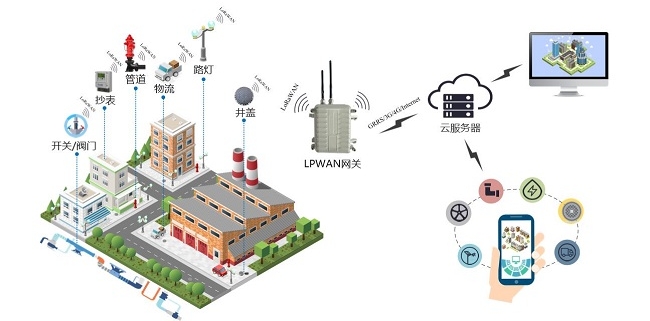Intelligent parks refer to the integration of new generation information and communication technologies, with the ability of rapid information collection, high-speed information transmission, highly centralized computing, intelligent transaction processing and ubiquitous service delivery, to realize timely, interactive and integrated information perception, transmission and processing in the parks, so as to improve the industrial agglomeration capacity, enterprise economic competitiveness and sustainable development of the parks. Advanced Park Development concept.
With the development of China’s economic transformation, traditional industrial parks are facing many challenges, such as incomplete industrial model, lack of sharing mechanism, serious imbalance of input and output, etc. In this regard, industrial parks need to take advantage of the new generation of information technology as an opportunity to rapidly improve their service level and quality, achieve transformation and development, acquire core competitiveness in the information environment, and meet the needs of rapid development of enterprises. Therefore, intelligent parks emerge as the times require.
The development of domestic smart parks has gone through the following three stages: 1. The pilot stage (1983-1988), the government-led smart parks, relying more on cheap land and tax policies, generally develop labor-intensive enterprises, but the relevance of each enterprise unit is weak; 2. The initial stage of development (1989-1999), this stage still needs to rely on the government-led to promote industrial agglomeration. 3. In the stable development stage (2000-present), after many years of development, the industrial chain tends to be perfect. According to the national policy requirements, green environmental protection enterprises have been strengthened, the competition for talents has become more intense, enterprises have entered the stage of rapid development, and technology-intensive enterprises have entered the stage of high-speed development. Industry has become more prominent, and enterprises have gradually embarked on the road of innovation and high-tech development.
Intelligent parks include industrial parks, industrial parks, logistics parks, Metropolitan Industrial parks, science and technology parks, creative parks and so on. They are based on the construction of three-dimensional database of the park as the core and the design criterion of three-dimensional database as the important basis, so as to realize timely, interactive and integrated information perception, transmission and processing in the park, so as to improve the industrial agglomeration capacity, economic competitiveness of enterprises. The sustainable development of the park is the goal of the advanced park, and scientific decision-making is made to improve the efficiency of Park management.
The industry chain of smart park is divided into three parts: the upstream includes land, infrastructure construction, electronic devices, cloud computing, big data, software, chips and intelligent manufacturing; the middle includes Park Property and service system, Park incubator operation and maintenance services, Park intelligent investment and intelligent management platform; and the downstream includes some enterprises and logistics.
By means of informationization, the integrative solution of smart parks is constructed with “park operation” as the center, and the model of smart parks is built from the aspects of brand, service quality and experience of enterprises. Improve the park’s public service system as the entity, industry cluster as the face, promote the participation of enterprises and organizations in the park, share resources, and establish a one-stop comprehensive public service system or system.



